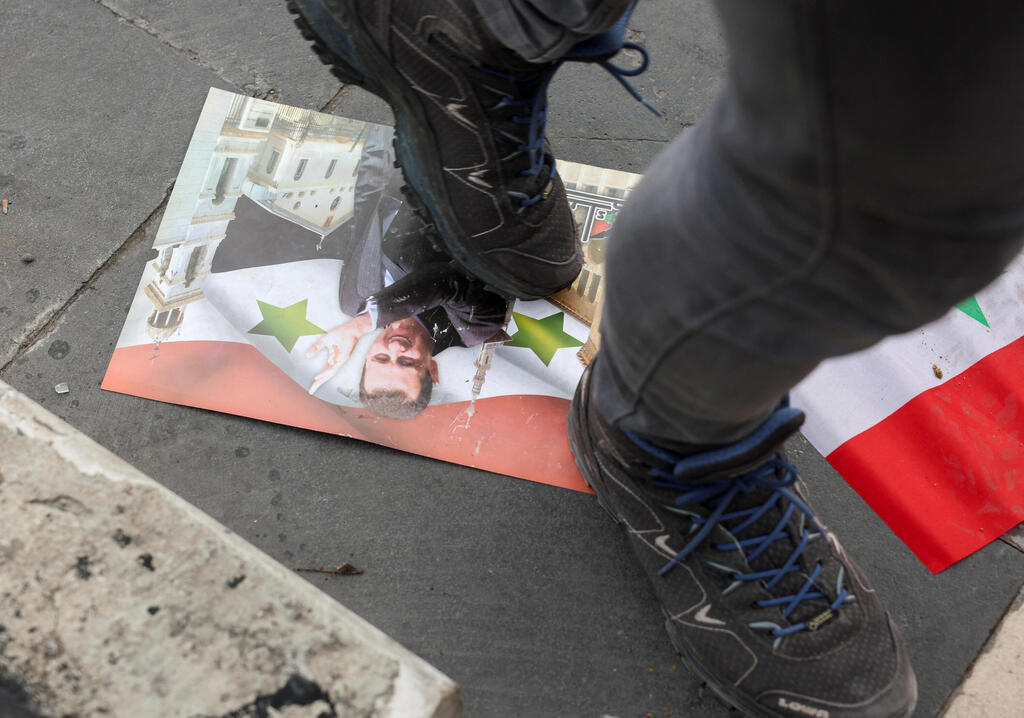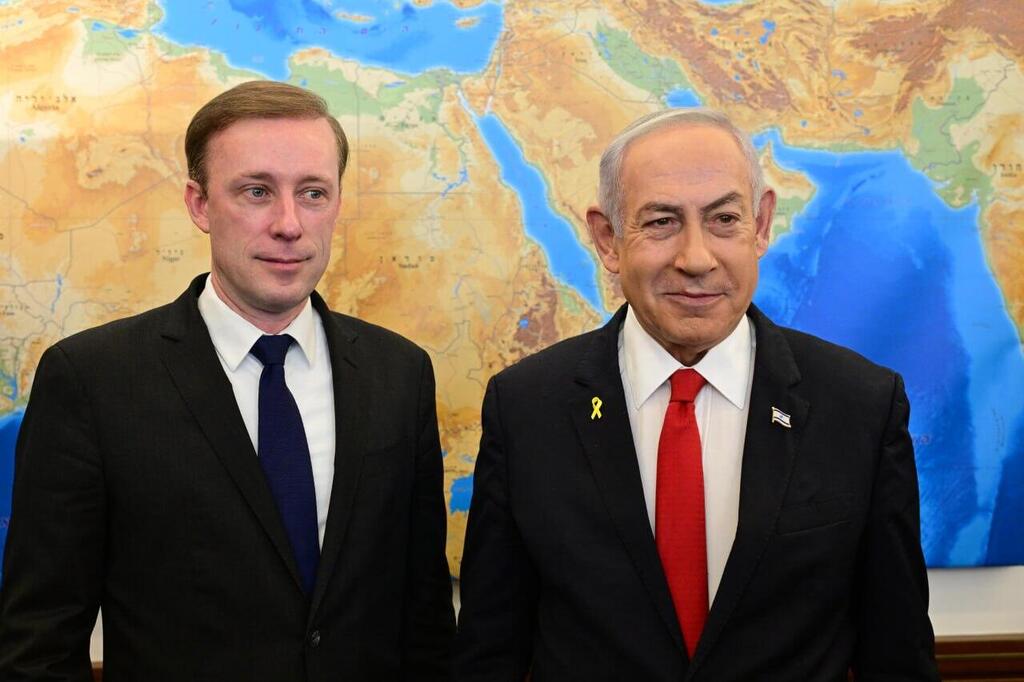Getting your Trinity Audio player ready...
After 54 years of brutal rule, Syrian rebels made history by toppling President Bashar Assad, who fled to Russia, ending the reign of the Assad dynasty. But who deserves credit for this? That depends on whom you ask. U.S. President Joe Biden and Prime Minister Benjamin Netanyahu each claim responsibility.
Biden and his administration argue they laid the groundwork by relentlessly working to weaken Assad’s key backers—Russia, Iran and Hezbollah. According to their narrative, it was no coincidence that none of Assad’s allies were willing or able to save him in his moment of need.
3 View gallery


Bashar Assad, Benjamin Netanyahu and Joe Biden
(Photo: AAREF WATAD/AFP, Alex Kolomoisky, AP)
Netanyahu, however, tells a completely different story. He asserts that Assad’s fall was solely due to Israel’s elimination of Hezbollah leader Hassan Nasrallah, which Netanyahu called "a turning point in the axis's collapse." Israeli officials were quick to note that Netanyahu authorized the strike against U.S. advice, as the Biden administration feared it might trigger a broader war.
Netanyahu did not shy away from criticizing Biden, claiming that the key was his own decision to ignore calls to "end the war before achieving all of our objectives." His message was clear: had he heeded Biden’s warnings to avoid a wider war, Assad would likely still be in his palace.
The New York Times addressed the matter, with Suzanne Maloney, a Brookings Institution scholar specializing in Iran and the region, suggesting Biden’s claims of creating pressure may hold some truth. However, she emphasized that there was no American plan to overthrow Assad’s government. “I think it is probably true that U.S. policy contributed to the fall of Assad,” she said. “It is probably untoward for the Biden administration to take credit."
If there was an American contribution, it did not begin with Biden’s presidency. As early as 2011, former President Barack Obama declared that Assad "must step aside." Two years later, during a visit to Israel, Obama stood alongside Netanyahu and said that Assad had lost all legitimacy. However, there was no concrete plan to oust Assad, and when his regime finally collapsed, the speed of its downfall surprised even U.S. intelligence officials.
Get the Ynetnews app on your smartphone: Google Play: https://bit.ly/4eJ37pE | Apple App Store: https://bit.ly/3ZL7iNv
Both leaders have political motives to claim credit for the fall of Assad’s regime. Biden, nearing the end of his term, is shaping the legacy he will leave behind, while Netanyahu faces a corruption trial and tough questions about his government’s failures.
On Tuesday, Israel conducted additional strikes on Syrian targets, including chemical weapons sites. White House National Security Council spokesperson John Kirby avoided endorsing or criticizing the Israeli attacks, stating only that "we have strong intelligence cooperation with Israel" without elaborating on the U.S. role in the operations.
National Security Advisor Jake Sullivan arrived in Israel on Thursday amid Syria’s dramatic upheavals. His agenda includes a range of regional issues. Washington insiders say efforts are underway to broker a hostage deal in Gaza and advance normalization between Israel and Saudi Arabia, though skepticism remains about achieving these goals in the limited time frame before the next administration assumes office on January 20.
During his meeting with Sullivan, Prime Minister Netanyahu stressed that Israel would take all necessary measures to defend its security against any threat. He explained that this included his directive for the IDF to temporarily take control of the buffer zone in Syria until an effective force is established to enforce the 1974 disengagement agreement.
Netanyahu’s office added that the prime minister emphasized the critical need to support minorities in Syria and prevent terrorist activities originating from Syrian territory against Israel.
What about the future of Syria and the United States? President-elect Donald Trump has proposed an entirely different approach. Just days before Assad’s escape, Trump posted on his Truth Social platform a call to action for the U.S.: "Syria is a mess, but is not our friend, & THE UNITED STATES SHOULD HAVE NOTHING TO DO WITH IT."
True to his "America First" philosophy, Trump has not provided a clear solution to the challenges arising from Syria’s collapse, including fears of chemical or biological weapons falling into hostile hands. Some believe this is the moment for Washington to take the lead in shaping Syria’s future. For now, however, the question of whether the U.S. will play an active role in stabilizing the situation in Syria remains unanswered.





